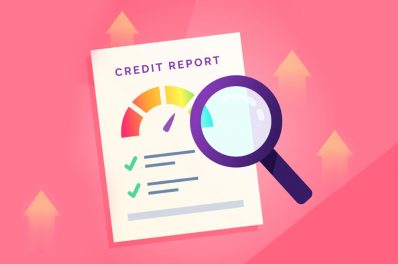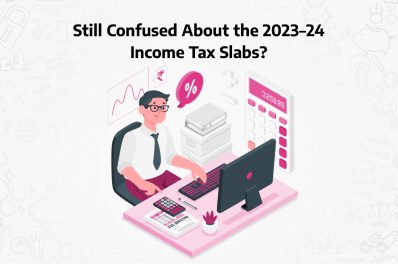
Your credit score matters a lot when it comes to qualifying for the best loan terms and conditions. It is a 3-digit number that you get based on your repayment history, credit behaviour, credit age, and diversity. While having a good credit score is crucial for your overall financial condition, there are several misconceptions that everyone thinks are true.
Here, we will debunk them to let you know the truth. The right information will help you improve your credit score over time without any failures.
1. Checking the Credit Score Can Reduce it
False. Checking your credit score any number of times does not reduce it. In fact, monitoring your credit score helps track your progress while trying to build credit. Therefore, checking it frequently even helps in improving it.
However, applying for a loan is considered a hard enquiry and may temporarily reduce your score. Most lenders have a credit score checking tool on their website, which you can use to check your credit score online. Check yours any number of times, and it won’t hurt your score even a bit.
2. The Higher is Your Income, the Higher Will Be Your Credit Score
No. Your income determines your capacity to pay EMIs, though it has no effect on your creditworthiness. Your income is not even mentioned in your credit report, so it cannot impact your credit score. Credit bureaus do not consider your wealth to calculate your credit score. A person with a high income may also miss payments, which may lead to a lower credit score than a person with a lower income.
Instead, factors that may impact your credit score include your credit utilisation rate, payment history, age of credit history, new credit, and credit mix.
3. A High Credit Score Means That You Are Rich
Not at all. A credit score measures your creditworthiness, not your wealth. A high credit score means you are a low-risk borrower, no matter how much you earn. Earning a good amount does not guarantee a regular payment history and a high line of credit. However, if you update your income and request a higher credit limit, you may notice an increase in your credit score.
4. Having a Perfect Score Improves Your Creditworthiness
False. No credit products exist for people with a perfect score only. Credit score ranges from 300 to 900, but once you reach an Experian score of 630 or above, you get the same benefits as an individual with above 850 score.
If you have reached a certain limit, you are likely to qualify for the best deals on all credit products, whether your score is 630 or 900.
Therefore, having a perfect credit score does not improve your creditworthiness in any way unless it meets the lender’s minimum requirement.
Also Read: Why You Should Check Your Credit Score Regularly?
5. There is No Need to Worry About Credit Score from a Young Age
Wrong. Lenders have a minimum age, after which you can apply for a loan. However, you should start worrying about your credit score from an even earlier age. It would help if you started building credit even before you started earning.
Over time, you can build credit with regular payments, and the age of your credit accounts also matters a lot. The earlier you start handling credit, the higher the credit score you may build over time.
6. Paying Off Debt Improves Your Credit Score
No. Paying off your credit card dues definitely improves your credit score, but paying off your debt may not have any effect on it. While being debt-free is good for your financial life, you cannot bump your score by paying off your loans. In fact, it can actually reduce your score by decreasing the number of your credit accounts.
However, that does not mean that you should not pay off your EMI loans. The key is to maintain diversity in your credit portfolio, fund your big-ticket expenses with a loan, and pay EMIs regularly to improve your credit score.
7. Marriage Merges Both Partners’ Credit Scores
Incorrect. When you get married, your credit reports do not get merged, and your credit score remains unique to you. Credit bureaus maintain credit reports for individuals at the consumer level only. If you apply for a loan with your partner, the lender will consider each applicant’s credit score separately.
However, the negative and positive actions of both of you reflect on your credit report.
8. Closing An Old Account Improves Your Credit Score
False. Closing an old account will not help in improving your credit score. In fact, it may cut short the length of your credit history and reduce your credit score. Remember, the more extended credit history you have, the higher are your chances of having a high credit score. However, there are certain circumstances under which you may think about closing your old account. For instance, if you are paying a high annual fee or high interest rate for maintaining that account, you may consider closing it.
Also Read: Is Your Credit Score Good Enough for a Loan?
9. Using Debit Card Improves Your Credit Score
When you use a debit card, you pay from the money you have already saved in your bank account. So, it’s your money, and you can use it anywhere you like. This means that it does not reflect in your credit report and has no effect on your credit score. You need to use credit to improve your credit score.
If you plan to apply for a personal loan or business loan having a high credit score is of the essence. However, don’t be fooled by the misconceptions making the rounds among people. Check your credit score online and see where you stand. If you need to improve it, stay away from these misconceptions and create an action plan with useful information given above.
For any queries, please find us on Facebook, Instagram, LinkedIn, Twitter, or WhatsApp.
You can also reach us at hello@clix.capital.com or call us at +91-120-6465400.T&C Apply*








